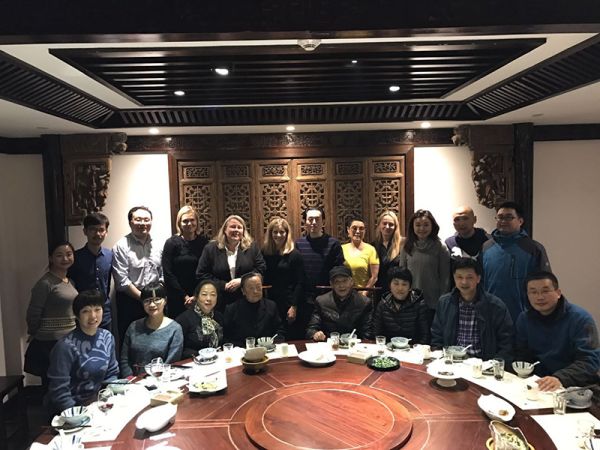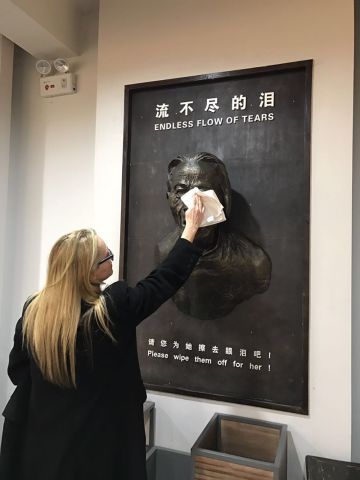Remembering the Nanjing Massacre
The Holocaust is inarguably the most heinous crime against a group of people we have seen in modern times. Despite decades of wrestling with how such an atrocity could have occurred and the postwar generation promising never again, history keeps repeating itself. Therefore, the collection and the custody of testimonies from those who bear witness remains a necessary task for as long as inhumanities keep occurring. Genocide and crimes against humanity transcend religions, cultures, languages, geographic regions, socioeconomics, gender, age, etc., making testimony collection across all cultures not only a moral responsibility, but imperative given the mission of USC Shoah Foundation. We know for sure that under a certain set of circumstances, genocide could happen anywhere, and again.
The Nanjing Massacre officially began on Dec. 13, 1937, when Japanese troops seized control of the city. Within weeks, hundreds of thousands of Chinese people were brutally murdered. The official number of victims stands at 300,000, but as in the Holocaust and the Rwandan Genocide, dehumanization and discrimination leading up to the murders took root years before the official date of the beginning of the war.
USC Shoah Foundation has been collecting testimonies for several years from the remaining 109 survivors in Nanjing, and by the end of January, will have completed the first phase of the project. The addition of these visual histories to the 54,000 testimonies in the Institute’s Visual History Archive will deepen and expand the understanding and complexities of genocide; they will assist educators who teach future generations about the universality of genocide, which is at the core of USC Shoah Foundation’s mission. Perhaps most importantly, as the survivors are nearing the end of their lives, their experiences won’t die with them and the victims’ voices will live in perpetuity.

I saw firsthand how hard the team works on the ground and I better understand what it takes, not only to collect testimonies, but the process of building relationships in a country where the culture may differ greatly from that of others. In preparing for the trip, I read books and articles on the topic, including “The Rape of Nanking” by Iris Chang. I had limited knowledge about this chapter in our world history and especially about the Japanese role and the Nanjing Massacre. I am not alone; very few Westerners are familiar with these events that occurred during the same time period as that of the atrocities against the European Jewry, and were as barbaric as the those committed by the Nazis. During the trip, there were many powerful moments and the Museum of the Comfort Women struck me deeply. As a daughter of a Holocaust survivor, I am acutely aware of the events rarely spoken about, such as sexual violence against girls and women. In Nanjing, a powerful and seemingly authentic museum is dedicated to the girls and women who were held as sex slaves for the Japanese soldiers. The museum is set in the very houses from this time and the stories and photographs depicted are graphic and difficult to comprehend.

We are deeply grateful to our fellow Next Generation Council member Cecilia Chan, without whom the Nanjing project could not have happened. On behalf of USC Shoah Foundation, Cecilia herself supports, raises funds and has made important introductions in China. She graciously hosted the team in Nanjing, Shanghai and Beijing, and to dinner with two survivors and their families in Nanjing; I could not avoid but to think of the many Holocaust survivors I know and the unimaginable pain and horrific experiences they must share, during the same time period, but on opposites sides of the world.

Having attended many Holocaust commemorations over the years, the 20th anniversary of the Rwandan Genocide with USC Shoah Foundation in Kigali in 2014, and the Nanjing Massacre commemoration, I have developed a keen appreciation for the urgency of our work and the uniqueness of our organization. No institute is better positioned than USC Shoah Foundation to undertake a project like this. It is, therefore, incumbent on us to continue to collect testimonies in China, and around the world, and to support the continuation of bringing innovative and cutting-edge curriculum to classrooms worldwide.
The words “never again” and “never forget” are cliches that ring hollow at this moment. Our team at USC Shoah Foundation, and partners, however, work tirelessly around the world to bring us more hope and they inspire me to feel that, in spite of it all, we can never give up and stop believing in a brighter future.